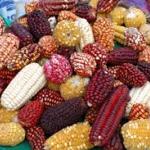Many researchers and policy analysts are currently looking to climate historians for answers on how societies and agricultural populations respond to major traumatic events (war, climate shocks, and agrarian transformations). Climate historians are “running the models backwards’’ as well as forward to assess what large scale and rapid climate change might entail both in terms of disasters as well as robust institutional responses. The recent information on emissions, coupled to the IPCC assessment, the UNEP Climate assessment and the US assessment all foretell of dire changes for which most societies are unprepared.
This workshop, highly multidisciplinary in nature, brings together climate scientists, contemporary analysts of farming systems and vulnerabilities, as well as scholars studying the environmental trade off, structural transformations, exposures and fragilities of socio natures under climate change. There are elements that already exist that we can review in terms of strategies, and history has things to tell us about what has worked and what has not. We view this workshop as one step for developing new ways of thinking about, adapting to and understanding the varying outcomes of food production in the uncharted realms that we now confront.
The purpose of this conference is to explore the powerful agrarian transitions that are under way in rural landscapes under the new climate regime. In recent years, an acceleration of extreme climate events, high variability in weather patterns, periodic droughts and “deluge” rainfall, as well as shifts in diurnal patterns, changes in pathogens, and loss of pollinators have put considerable pressure on farming in general. Large-scale cultivators of monocrops are facing significant challenges because of the limited resilience of such systems, whereas for small farmers the impacts of rapid and uncertain climate change are particularly severe because of volatile price dynamics, ecological contexts, and more general vulnerabilities.
This workshop brings together scholars from multiple disciplines ranging from history to agro-ecology to explore these issues through the organizing axis of the Future of Food.
Please find the full programme here.
As seats are limited, please register at: cies@graduateinstitute.ch by Friday 5 April at the latest if you wish to attend the sessions.
Please also specify any dietary requirements as lunch will be served.




